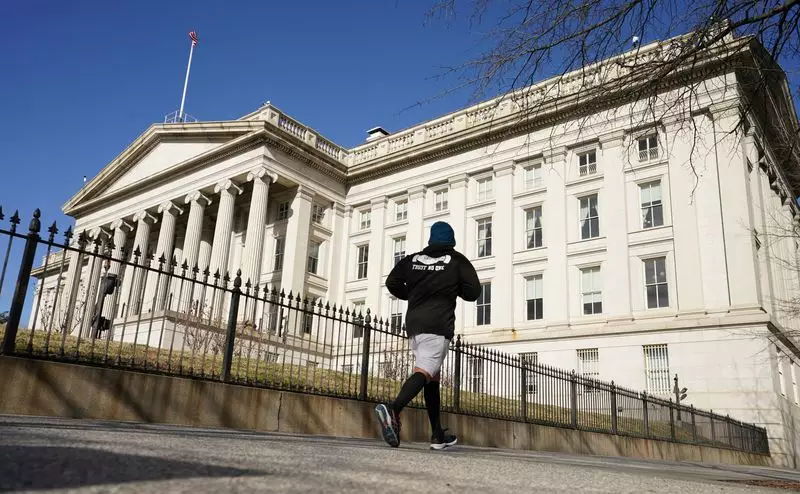In a concerning development for the U.S. economy, the government reported a budget deficit of $367 billion for November, marking a significant 17% increase compared to the previous year. The Treasury Department attributed this surge largely to calendar adjustments relating to benefit payments, which inflated expenditures by nearly $80 billion. This scenario paints a stark picture of the fiscal health of the nation, revealing challenges that have emerged in the wake of more aggressive government spending and shifting fiscal policies.
The notable adjustments, particularly the acceleration of payments for Medicare and Social Security into November, resulted in a reported deficit that would have been approximately $29 billion lower, or 9% less, if these payments had been disbursed in their usual timeframe. Yet, despite this potential moderation, the $367 billion deficit stands as a historic mark for November, underscoring the growing strain on federal finances.
Remarkably, November also saw record highs in both receipts and outlays, with revenue climbing 10% to $302 billion and expenditures increasing by 14% to $669 billion. These figures reflect broader economic trends, including rising consumer consumption and inflationary pressures, which often drive the need for increased government expenditure. The stark reality is that while tax receipts are improving, the rate of growth in outlays is outpacing this increase, leading to a troubling fiscal imbalance.
Further complicating this financial landscape is the deficit recorded for the first two months of the 2025 fiscal year, which reached an alarming $624 billion. This figure far surpasses even the deficits recorded during the peak of the COVID-19 pandemic, suggesting that the U.S. is grappling with deeper structural issues in its fiscal policy.
The financial challenges facing the government are exacerbated by several factors. In particular, the postponement of tax payments due to natural disasters in California and elsewhere allowed for a temporary surge in revenue during October and November, but such anomalies can lead to volatile financial forecasting. Year-to-date receipts were down 7% compared to the previous year, trailing behind escalating expenditures that surged by 18% to $1.253 trillion. This imbalance highlights significant challenges ahead as policymakers strive to stabilize public finances amidst rising costs.
As the U.S. navigates this complex fiscal situation, the implications for future spending, taxation, and overall economic policy become increasingly critical. The growing deficit not only reflects current spending patterns but also poses questions regarding the sustainability of such fiscal practices. Policymakers will need to consider how to address these issues head-on without stifling economic growth, particularly as they balance the needs of an aging population with the necessity to maintain fiscal responsibility.
The rising budget deficit serves as a warning signal for the U.S. economy, necessitating urgent attention and action from fiscal leaders. The challenge lies not just in addressing immediate funding needs but in crafting a long-term strategy that secures financial health for future generations.

